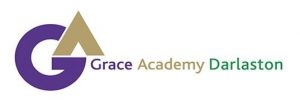Key Information
Start Date: Sept 2022, Sept 2023
Exam Board: AQA
Graded: A* – E
Max UCAS Tariff Points: 56
Official Website: Click Here
Contact Miss A Parshotam: Click Here
What will I be studying?
A variety of literature texts including Shakespeare’s Othello, Fitzgerald’s The Great Gatsby and an anthology of love poetry. In the second year you’ll be studying texts centred around modern times, such as Williams’s A Streetcar Named Desire, Walker’s The Colour Purple and Duffy’s The Feminine Gospels.
What skills will I be learning?
You will develop the transferrable skills of communication , literary analysis and the interpretation and evaluation of literature. You will study literature through two of the main historicist perspectives. Diachronic-texts written across different time periods linked by a common theme, and Synchronic– texts written within a narrower time period.
How will I be assessed?
External examinations:
Paper 1— Love Through The Ages (40%)
Paper 2— Modern Times (40%)
Non Exam Assessment:
Texts Across Time (20%)- a 2500 word essay
Where might this lead me?
You will develop a wide range of transferrable skills which could lead to you taking an English Literature, Journalism, Creative Writing or Law degree. Further avenues available to follow include: teaching (primary and secondary), law, journalism, advertising, marketing and events management.
Please note, all courses run subject to student numbers and will confirmed during interviews.

